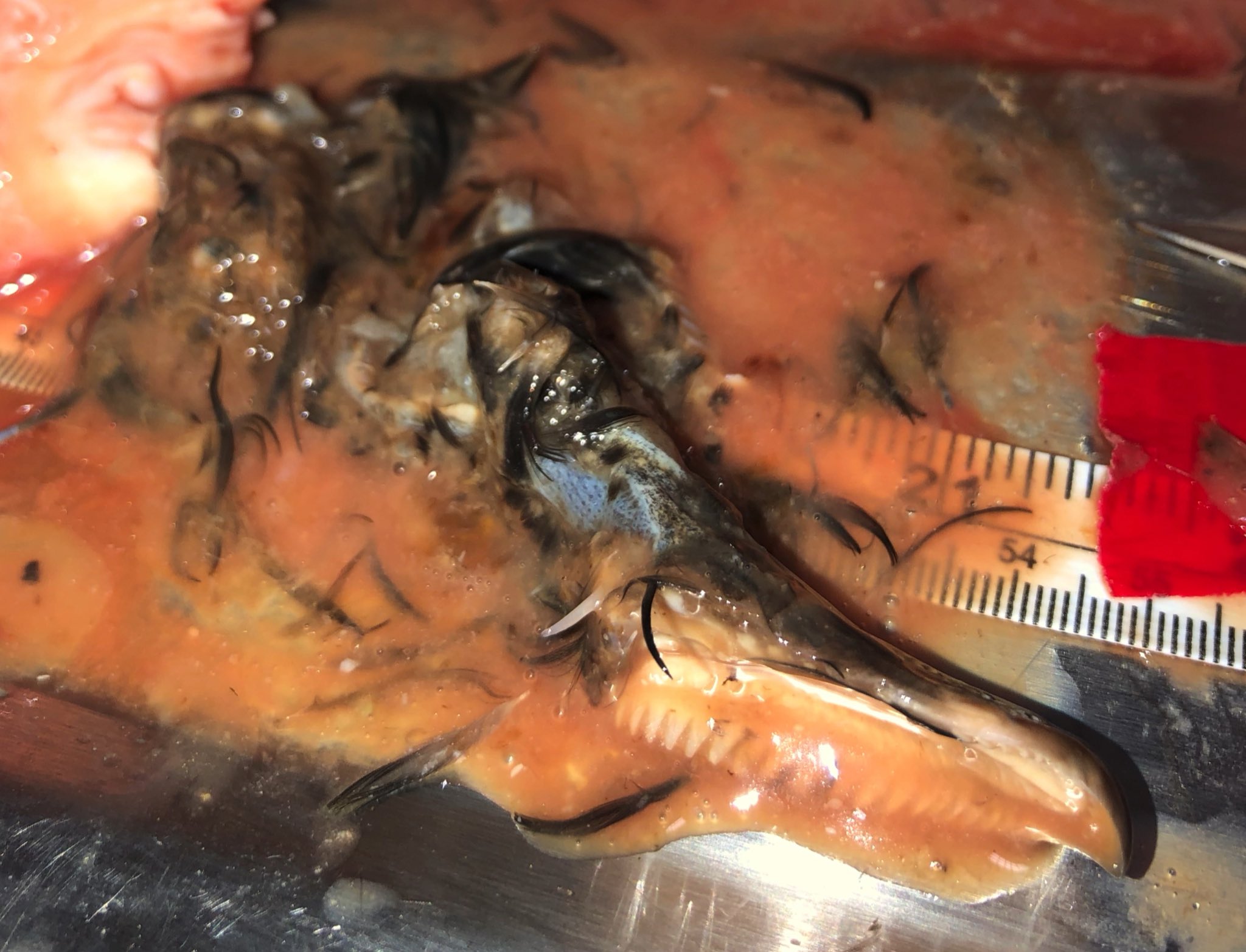Noah Bressman, an assistant professor of physiology at Salisbury University, and his team of students conducting a research project found something no one has ever recorded finding before inside of a blue catfish’s stomach.
The catfish had the remains of a whole wood duck inside of its stomach. Bressman’s research team, led by MS student Zach Crum said they got the fish weighing a hefty 47 pounds out of Chesapeake Bay.
Until now, researchers have never recorded a catfish with the remains of a whole wood duck in its stomach. The duck appeared to be a fresh kill because it wasn’t showing any signs of decomposing.
“I knew blue cats would eat anything they could get their mouths around, but the full-size wood duck definitely caught us off guard, especially because it was in one of the first catfish we cut open for this project,” Bressman told F&S. “It makes me wonder what else we will find since we are just getting started.”

@NoahwithFish / Twitter
The duck was found after the fish was caught and brought back to Salisbury University to Bressman’s lab where he was conducting a study on the dietary habits of blue catfish.
“Our main objectives are to identify the potential impact that blue catfish may be having on native species of conservation concern within the Nanticoke River and compare our results to diet studies that have been conducted in different areas,” Crum said. “Previous blue catfish diet studies on the Western Shore of the Chesapeake Bay have documented them eating muskrats, turtles, snakes, threatened shad, and herring. We are eager to see what turns up in the stomachs we look at over the next year.”
Graduate student Zach Crum who is leading the project in Bressman’s lab works with Maryland Department of Natural Resources (MDNR) biologists to catch the blue catfish through electrofishing efforts in the Chesapeake Bay.
Crum said,“To the best of my knowledge, this is the first identified species of duck that has been found in the stomach of a blue catfish. We can’t know with certainty whether or not it was scavenged, but aside from digestion, the duck appeared to be completely intact with no evidence of noticeable decomposition.”

@NoahwithFish / Twitter
“The catfish could have ambushed the duck on the surface like a great white launching out of the water at a seal, or the duck could have been getting on or off a log that a catfish was hiding under,” Bressman added. “Wood ducks are also dabblers, so the catfish could have grabbed the duck’s head while it was poking down in the water, which could catch the duck off-guard. This is all speculation, though, and it is still possible the duck could have freshly died and then the catfish swallowed it up.”


